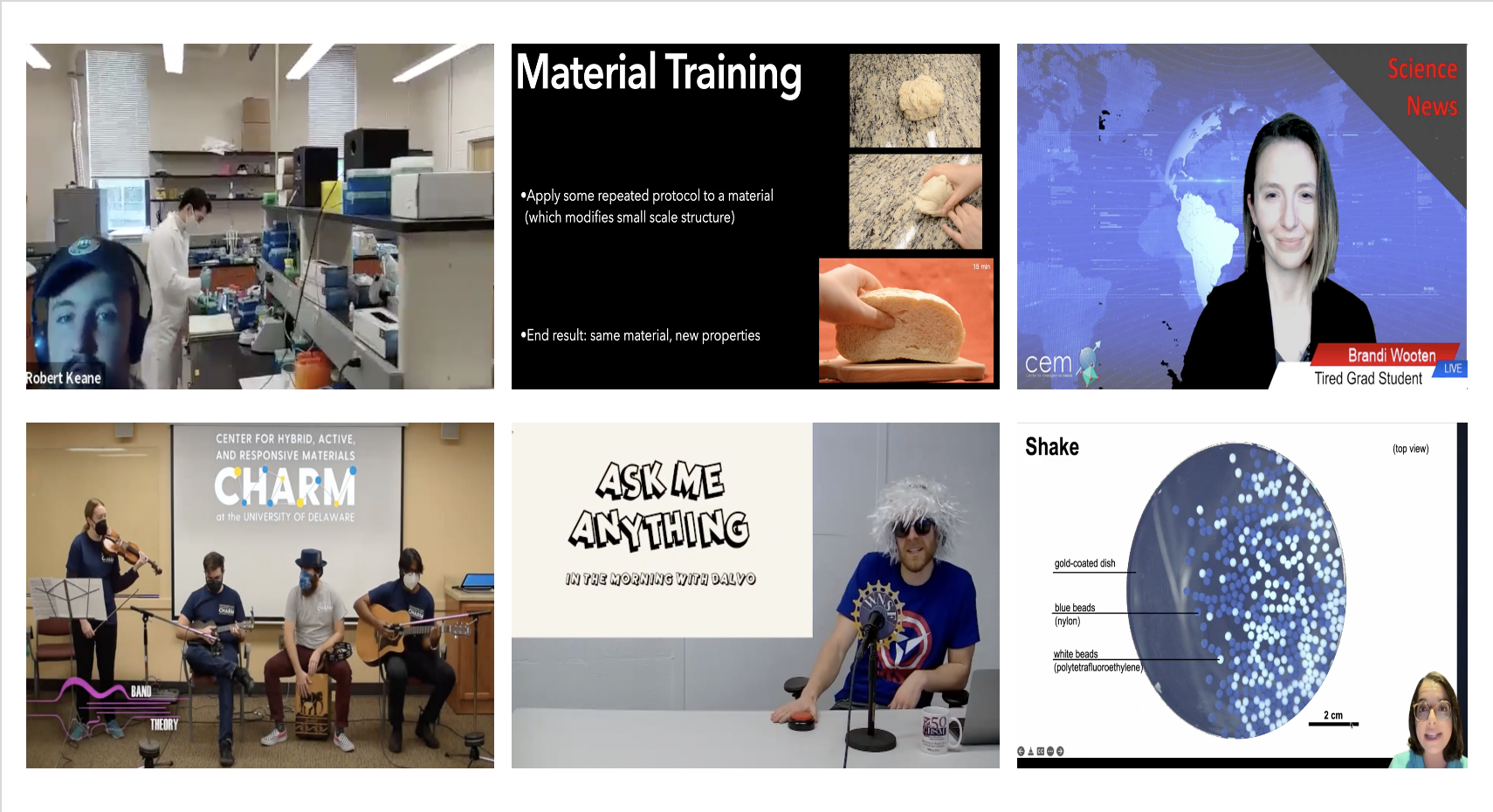By Divya Abhat
 The next time you sink your teeth into a soft slice of bread, think about the material training that went into making that bread. Material training is one of many approaches to designing new materials and involves taking a material and applying a repeated training protocol that modifies small-scale structures in the material. The result is the same material that you started with but with new properties. When it comes to that slice of bread, repeatedly kneading the dough changes its gluten structure and results in a stronger and more elastic version of itself -- and also makes for a truly delicious materials science experiment.
The next time you sink your teeth into a soft slice of bread, think about the material training that went into making that bread. Material training is one of many approaches to designing new materials and involves taking a material and applying a repeated training protocol that modifies small-scale structures in the material. The result is the same material that you started with but with new properties. When it comes to that slice of bread, repeatedly kneading the dough changes its gluten structure and results in a stronger and more elastic version of itself -- and also makes for a truly delicious materials science experiment.
That science experiment was one of 19 at the first-ever MRSEC Science Slam, recently held online. Each Science Slam presentation was five minutes long and tailored to a lay audience in the form of live experiments, songs, and poetry.
"Science tells a story," says Savannah Gowen, a graduate student at the University of Chicago and part of the winning team that presented their research on material training in a video titled, "How to Train Your Gluten." "This event paid tribute to the fact that you don't need a textbook to teach or learn something. We can learn through a song or a laugh, and even through hobbies like baking bread."
Science Slam topics ranged from the use of shapeshifting molecules to create smart fiber materials for medical devices to the need for a heat switch to better harvest waste heat. Other topics included theoretical and material building blocks of Quantum Networks, the concept of creating transformable materials, and the ability of atoms to naturally assemble into crystals in the presence of enough heat.
Pioneers of Materials Research
The Materials Research Science and Engineering Centers or MRSEC program is the oldest center program at the National Science Foundation and the catalyst that started NSF's Division of Materials Research (DMR) in the early 1970s. "What MRSEC brought to the Foundation was a new culture of how scientists work together across disciplines to ask and answer grand materials science questions beyond the scope of what any one discipline could resolve" said Sean Jones, Assistant Director for the Mathematical and Physical Sciences Directorate, in his introductory remarks at the Science Slam.
In 2021, MRSEC Program Director, Miriam Deutsch developed a plan to showcase MRSEC's accomplishments in a way that would not only engage the entire MRSEC community but also promote research activities beyond its borders. Deutsch worked with MRSEC co-directors Cosima Boswell-Koller and Shadi Mamaghani to offer MRSECs the opportunity to share research that most excites them in an approachable and relatable way, in the process opening the door for MRSEC participants and the broader community to get an overview of this unique program. And so, the MRSEC Science Slam was born.
"The Science Slam represents a bold, new, and innovative way to articulate the impact of MRSEC research on science and allows participants to articulate what excites them in an informal, fun way to continue building and bolstering bridges between researchers and the public,” says Jones.
The Many Faces of Science
At a time when isolation seems to have become the norm, more than 1,300 people from around the world came together on Zoom to learn about materials science and vote on their favorite presentation. The winners -- the University of Chicago -- received a plaque, which will be inscribed with their name and the names of winning MRSECs from subsequent Science Slams.
"The science slam was tremendously successful, well beyond our expectations," says Boswell-Koller, speaking for her co-directors as well. "This engagement showcases both how the scientific topics and their impacts resonate with the audience, as well as the efficacy of the slam mechanism to relay that information."
Already the directors are planning the next Science Slam and while the presentations may change and the winners will come and go, the goal, as Boswell-Koller sang to the tune of "Soon May the Wellerman Come" will remain constant.
Soon may the MRSECs come
To bring us students, research, and fun
One day when the teaching is done
They'll change the world for good.
